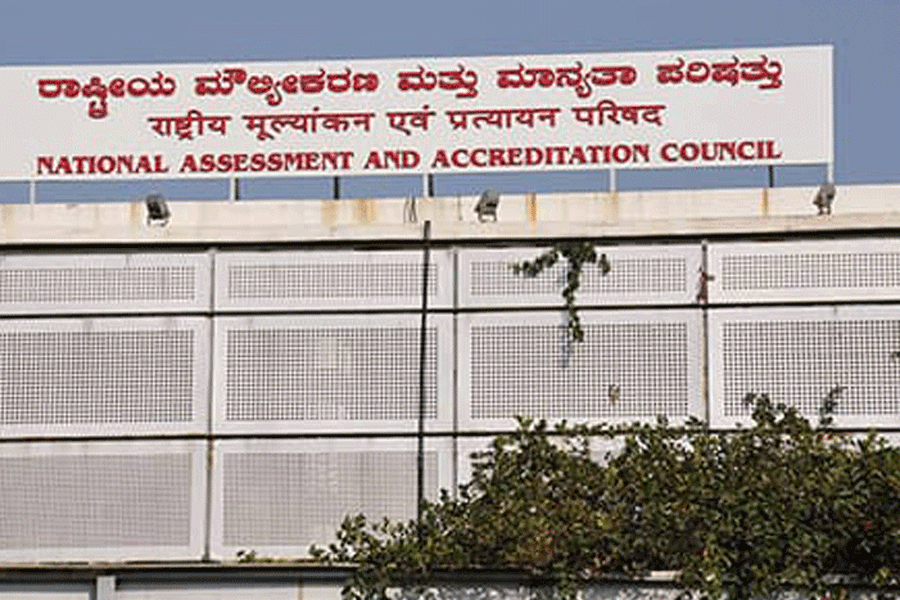The national agency that accredits universities and colleges has over the past year and a half reviewed and lowered the grades of about 200 institutions, raising questions about the integrity of the assessment process.
Two academics, including a former state university vice-chancellor, suggested the National Assessment and Accreditation Council (NAAC) seek police investigation in instances where the grades had to be lowered by two notches or more.
What have been lowered were provisional scores — the council never officially awarded these higher grades, having become suspicious of them from the outset, sources clarified.
The controversy comes days after the CBI registered an FIR over allegations that bribes were paid to secure a higher grade for the Koneru Lakshmaiah Education Foundation, a deemed university in Andhra Pradesh.
The FIR names as accused seven campus inspectors sent by the council, three officials of the university, and NAAC adviser M.D.Shyamsundar.
Council director Ganesan Kannabiran told The Telegraph that the review of “aberrations” in the grading of about 400 institutions had begun in July-August 2023. Of these, about half had been downgraded following fresh data verification and inspections.
The breakup of government and private institutions among these 200 was not immediately available.
The council awards grades of A++, A+, A, B++,B+, B, and C for scores between, respectively, 4 and 3.51, 3.5 and 3.26, 3.25 and 3.01, 3 and 2.76, 2.75 and 2.51, 2.5 and 2.01, and 2 and 1.51. A fresh grading is done every five years. Accreditation is not mandatory.
Each institution that seeks accreditation uploads on a dedicated NAAC portal its own “self-study report” on its areas of strength and other details.
The council forwards this to an NAAC coordinator and a data verification and validation (DVV) “partner” — an agency hired to verify online all the information in the self-study reports. These agencies include private companies and some government institutions, such as the IITs.
Next, a physical inspection of the institution is carried out through a peer team visit (PTV) by council-assigned experts. A peer team assesses an institution on multiple “matrices”, assigning a score between 0 and 4 on each matrix.
Seventy per cent weight is given to the DVV report and 30 per cent to the PTV report during grading.
Kannabiran said the council had reviewed the provisional grades if any of three circumstances applied:
- The institution’s grade jumped more than two notches over the previous grade, awarded five years earlier.
- If it was the institution’s first assessment and it still received an A++ or A+.
- If the difference in the scores awarded by the DVV agency and the peer team was more than 30 per cent. Depending on which was higher, the council conducted a fresh data verification or sent a new peer team.
The council debars peer team members from the accreditation process for one year if the score of an institution assessed by them is downgraded by two notches on review, sources said. DVV agencies whose performance raises repeated questions are not given further assignments.
Two independent academics said the council’s actions were not enough of a deterrent against corrupt practices by the date verifiers orpeer teams.
“Police investigation should be started against the peer team members or DVV (agencies) if an institution’s score is downgraded by two or more notches. The peer team members should be handed lifetime bans,” an academic who did not want to be identified said.










